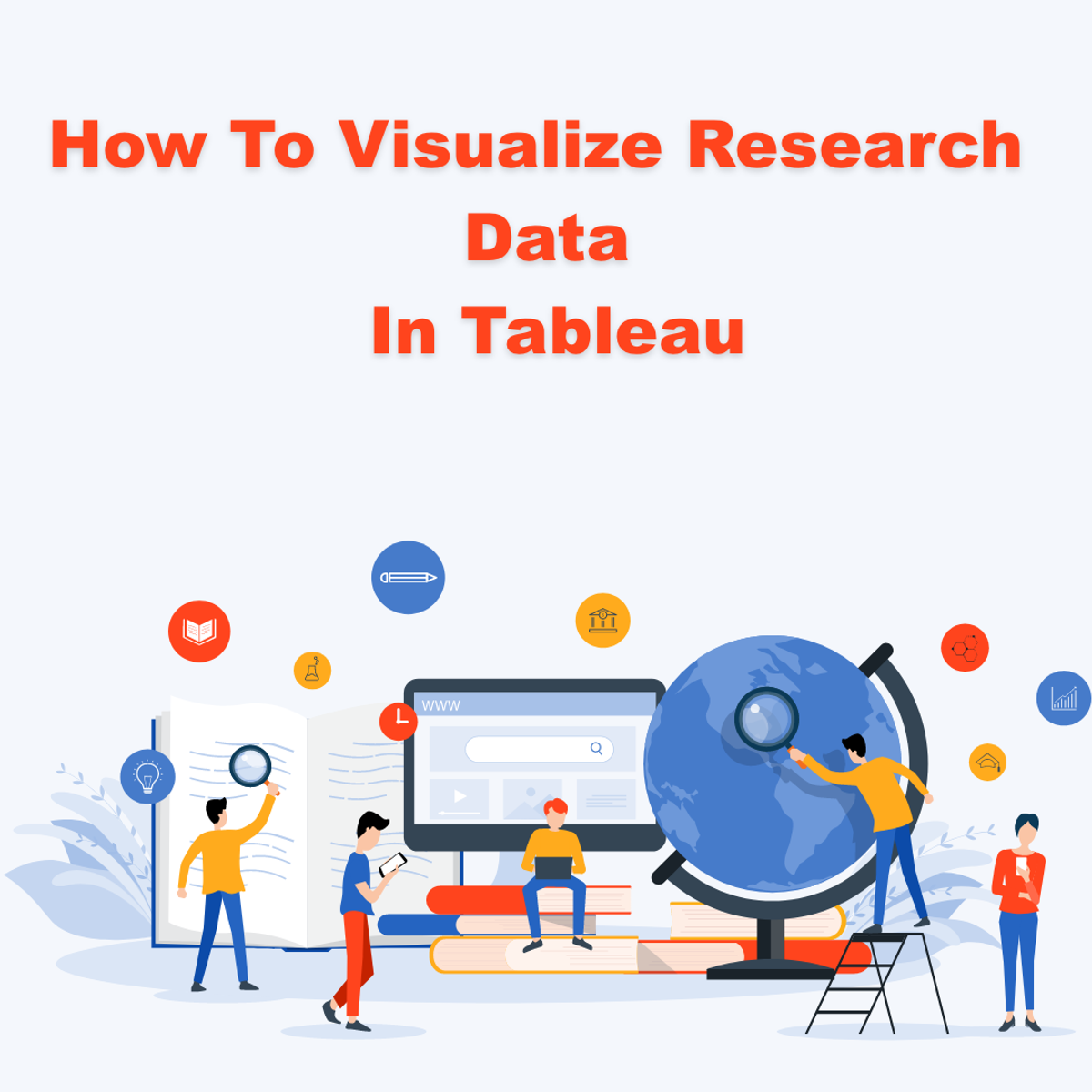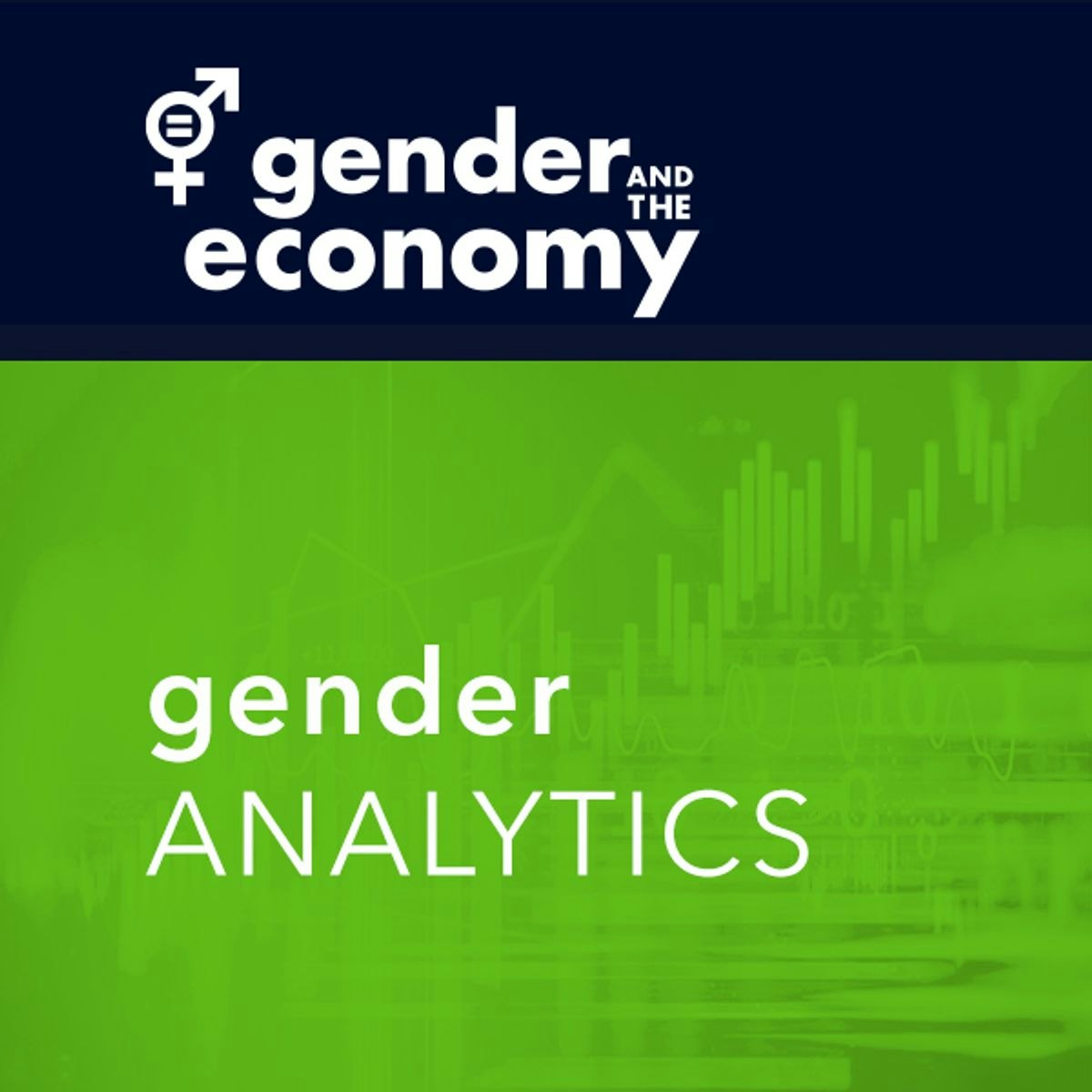Social Scientist
A Career Guide to Becoming a Social Scientist
Social science is the broad field dedicated to understanding human society and social relationships. Social scientists systematically study all aspects of human behavior, social structures, interactions, and cultural phenomena. They use rigorous research methods to explore everything from individual choices and small group dynamics to large-scale societal trends, political systems, and economic forces.
Working as a social scientist can be deeply engaging. You might find yourself uncovering patterns in human behavior, informing public policy decisions that affect millions, or delving into the rich complexities of different cultures. It's a career path that often combines intellectual curiosity with a desire to contribute meaningfully to society's understanding of itself and its challenges.
What Does a Social Scientist Do?
Defining the Field and Its Reach
At its core, social science seeks to apply scientific principles to the study of the human world. Unlike the natural sciences that focus on the physical and biological world, social sciences examine the intricate web of human connections, institutions, and experiences. This field is inherently interdisciplinary, drawing insights from various perspectives to paint a holistic picture of social life.
Social scientists investigate questions like: How do societies change over time? What factors influence political opinions or economic decisions? How do cultural norms shape individual behavior? Why do inequalities persist? Their work involves formulating theories, collecting data through observation, surveys, interviews, or experiments, and analyzing that data to draw evidence-based conclusions.
The goal is often not just to understand society but also to address pressing social issues. Findings from social science research can inform solutions related to poverty, crime, public health, education, environmental sustainability, and international relations, making it a field with significant real-world impact.
For those interested in the foundational aspects of social science research, particularly concerning specific societies, these courses offer valuable insights.
Diverse Roles Across Sectors
The skills of a social scientist are valuable across many sectors. In academia, they conduct research, publish findings, and teach the next generation. Universities and research institutions are primary employers, supporting deep exploration into specific social phenomena.
Governments at all levels rely heavily on social scientists. They work as policy analysts, program evaluators, statisticians, and researchers, providing data and analysis to inform legislative decisions, design effective public programs, and assess their impact. Agencies focused on health, education, labor, housing, and justice frequently employ social scientists.
Non-governmental organizations (NGOs) and non-profits also seek social scientists to help understand the communities they serve, design interventions, measure outcomes, and advocate for social change. Their research can be crucial for securing funding and demonstrating the effectiveness of programs aimed at improving social welfare.
Increasingly, the private sector recognizes the value of social science expertise. Market research firms, tech companies, consulting groups, and human resources departments hire social scientists to understand consumer behavior, organizational dynamics, user experience, and workforce trends. Their ability to analyze human factors is becoming essential in product development and strategic planning.
This book provides a comprehensive overview of social research practices applicable across these sectors.
Key Disciplines within Social Science
Social science encompasses several distinct disciplines, each with its own focus, theories, and methods, though often overlapping.
Sociology studies human society, social behavior, patterns of social relationships, social interaction, and culture. Sociologists examine social structures, institutions, and group dynamics.
Anthropology explores human diversity across time and space, including cultural practices, social organization, human evolution, and archaeology. Cultural anthropologists often use ethnographic methods involving immersive fieldwork.
Psychology focuses on the mind and behavior, studying individual mental processes, emotions, cognition, and personality. While often considered distinct, social psychology bridges sociology and psychology.
Economics analyzes the production, distribution, and consumption of goods and services. Economists study markets, incentives, resource allocation, and economic policy, often using quantitative models.
Political Science examines systems of government, political activities, political thoughts, and political behavior. It explores power dynamics, international relations, public policy, and political theory.
Other related fields include geography (studying spatial relationships and human-environment interactions), history (analyzing past events to understand the present), communication studies, and criminology. While each has unique perspectives, interdisciplinary collaboration is common and enriching.
To explore the diverse landscape of social sciences further, you can browse courses within the Social Sciences category on OpenCourser.
Core Competencies and Skills
Mastering Research Methodologies
A fundamental skill for any social scientist is proficiency in research methodologies. This involves understanding how to design studies, collect data systematically, and analyze findings rigorously. Social scientists employ both qualitative and quantitative approaches, often depending on the research question.
Quantitative methods involve numerical data and statistical analysis. This includes designing surveys, conducting experiments, and analyzing large datasets to identify patterns, correlations, and causal relationships. Statistical software is essential for this type of work.
Qualitative methods focus on non-numerical data, such as interviews, observations, focus groups, and textual analysis. These methods aim to provide deep insights into experiences, meanings, and social processes. Rigor in qualitative research involves systematic coding, thematic analysis, and careful interpretation.
Many social scientists utilize mixed-methods research, combining both qualitative and quantitative approaches to gain a more comprehensive understanding of complex social phenomena. Choosing the right method or combination of methods is crucial for producing valid and reliable research.
These courses introduce foundational and comparative research methods used in social science.
These books offer in-depth guidance on various research methodologies.
Proficiency in Data Analysis
Analyzing data effectively is central to social science. For quantitative researchers, this means mastering statistical concepts and software. Common tools include R, SPSS, STATA, and Python with data analysis libraries. Skills range from descriptive statistics to advanced techniques like regression analysis, multilevel modeling, and causal inference.
Qualitative researchers use tools like NVivo or Atlas.ti for managing and coding textual or visual data. Skills involve identifying themes, patterns, and narratives within the data, often requiring careful interpretive work. Regardless of the method, understanding data visualization techniques is vital for communicating findings clearly.
Some social scientists, particularly in fields like computational social science or economics, also benefit from basic coding skills (e.g., Python, R) for data scraping, manipulation, simulation, and analysis of large datasets ("big data").
These books cover statistical learning and modeling, essential for advanced data analysis.
Developing Critical Thinking and Ethical Reasoning
Social scientists must be sharp critical thinkers. This involves questioning assumptions, evaluating evidence objectively, identifying biases (in oneself and in data), and considering alternative explanations. They need to logically construct arguments based on evidence and assess the validity of claims made by others.
Ethical reasoning is equally crucial, especially since much social science research involves human participants. Researchers must understand principles like informed consent, confidentiality, minimizing harm, and ensuring privacy. They navigate complex ethical dilemmas related to sensitive topics, vulnerable populations, and the potential impact of their research findings.
Institutional Review Boards (IRBs) or ethics committees oversee research involving human subjects, requiring researchers to justify their methods and safeguards. Adherence to ethical guidelines is paramount for maintaining public trust and the integrity of the field.
This course specifically addresses ethical considerations in data science, which overlaps significantly with social science ethics.
Effective Communication Skills
Strong communication skills are essential for disseminating research findings and translating complex ideas for different audiences. Social scientists need to write clearly and persuasively for academic publications, grant proposals, and reports.
Presenting research at conferences requires concise and engaging oral communication skills, often aided by effective data visualization. Explaining findings to policymakers or the public demands the ability to simplify complex concepts without sacrificing accuracy, tailoring the message to non-expert audiences.
For those working outside academia, skills in writing policy briefs, reports, or presentations for business stakeholders are vital. Collaboration skills are also important, as much social science research involves teamwork across disciplines or institutions.
This course focuses on translating research into policy recommendations, a key communication skill.
Formal Education Pathways
Laying the Foundation: Undergraduate Studies
A bachelor's degree is typically the minimum requirement to enter fields related to social science, though often in supporting roles. Common undergraduate majors include Sociology, Anthropology, Political Science, Economics, Psychology, or interdisciplinary Social Science programs.
These programs introduce foundational theories, research methods, and key concepts within a specific discipline. Coursework often includes introductory statistics, research design, social theory, and specialized electives related to areas like criminology, gender studies, urban studies, or international relations.
Undergraduate studies develop critical thinking, analytical reasoning, and writing skills. Students gain exposure to different ways of understanding social phenomena and learn the basics of empirical inquiry. Internships or research assistant opportunities can provide valuable practical experience.
Advancing Knowledge: Graduate Programs
For independent research roles, academic positions, or senior policy analysis work, a graduate degree is usually necessary. Master's degrees (MA or MS) typically take 1-2 years and offer deeper specialization and advanced methodological training. They can prepare students for PhD programs or for applied research roles in government or the private sector.
A Doctor of Philosophy (PhD) is the highest academic degree and is generally required for tenure-track university positions and high-level research leadership roles. PhD programs usually take 4-7 years and involve intensive coursework, comprehensive exams, and the completion of a dissertation – a substantial original research project.
Choosing between a Master's and a PhD depends on career goals. A Master's might suffice for many applied roles, while a PhD is essential for a career focused on academic research and teaching. Some programs offer combined MA/PhD tracks.
This course delves into advanced economic concepts often covered in graduate studies.
Core Coursework and Specialization
Graduate programs build upon undergraduate foundations with more rigorous training. Core coursework typically includes advanced social theory, advanced qualitative and quantitative research methods, and statistics. Students learn sophisticated analytical techniques and engage deeply with the theoretical debates within their discipline.
Beyond core requirements, students choose elective courses to develop expertise in specific subfields. This might involve areas like social stratification, demography, political economy, cultural anthropology, comparative politics, or econometrics. Selecting a specialization helps define a student's research focus.
Methodological training is a significant component. Students often take multiple courses in statistics, survey design, ethnographic methods, causal inference, or other techniques relevant to their chosen field and research interests. Proficiency in these methods is crucial for conducting independent research.
These courses cover key methodological areas often studied at the graduate level.
These books address essential aspects of survey research and measurement often encountered in graduate coursework.
The Dissertation: Culminating Research
The capstone of a PhD program is the dissertation (or sometimes a substantial thesis for Master's degrees). This requires the student to conduct original research that makes a significant contribution to their field. It involves identifying a research question, designing a study, collecting and analyzing data, and writing a lengthy scholarly work.
The dissertation process is guided by a faculty advisor and committee. It demonstrates the student's ability to conduct independent research from start to finish. Successfully defending the dissertation before the committee marks the completion of the PhD.
The dissertation often forms the basis for early publications and helps establish the researcher's expertise in their chosen area. It's a demanding but rewarding process that solidifies one's identity as a professional social scientist.
Career Progression in Social Scientist Roles
Starting Out: Entry-Level Positions
With a bachelor's or master's degree, individuals often begin in roles like Research Assistant, Data Analyst, Junior Policy Analyst, Program Coordinator, or Market Research Associate. These positions typically involve supporting senior researchers or analysts.
Responsibilities might include collecting data (surveys, interviews), managing datasets, conducting literature reviews, performing basic statistical analysis, preparing reports, and assisting with project logistics. These roles provide valuable hands-on experience with research processes and different work environments (academia, government, non-profit, private sector).
Entry-level positions are crucial for building foundational skills, understanding the practical application of social science methods, and establishing a professional network. Success in these roles often involves demonstrating reliability, attention to detail, and a willingness to learn.
Moving Up: Mid-Career Advancement
After gaining several years of experience and potentially completing advanced degrees (Master's or PhD), social scientists can advance to more independent roles. These include positions like Research Scientist, Project Manager, Senior Policy Advisor, Program Evaluator, or Tenure-Track Assistant/Associate Professor in academia.
Mid-career professionals typically take on greater responsibility for designing and leading research projects, managing budgets and teams, analyzing complex data, writing major reports or publications, and presenting findings to key stakeholders or academic peers. In academia, this stage involves establishing a research agenda, securing grants, publishing actively, teaching, and mentoring students.
This phase often requires strong leadership, project management, and communication skills, alongside deep expertise in a specific area of social science. Networking and building a reputation within one's field become increasingly important for advancement.
Reaching the Top: Senior Leadership Roles
With extensive experience and a strong track record, social scientists can move into senior leadership positions. In academia, this could mean becoming a Full Professor, Department Chair, or Dean. In government, roles might include Director of Research, Chief Statistician, or Senior Executive Service positions influencing major policy directions.
In the non-profit sector, senior roles could involve leading research divisions or holding executive positions. In the private sector, opportunities might exist as Principal Scientist, Director of User Research, Head of People Analytics, or senior consultant. These roles often involve setting strategic direction, managing large teams or departments, overseeing significant budgets, and representing the organization externally.
Leadership at this level requires not only deep expertise but also strong strategic vision, management acumen, and the ability to influence decision-making at the highest levels. Mentoring junior colleagues and shaping the future of the field or organization are often key responsibilities.
Pivoting and Adjacent Fields
The analytical, research, and critical thinking skills developed as a social scientist are highly transferable. Many social scientists transition into related or adjacent fields throughout their careers. Common pivots include moving into Data Science, user experience (UX) research, public health program management, urban planning, or market analysis.
For example, expertise in quantitative methods can lead to roles in data analytics or quantitative research in finance (Finance & Economics). Qualitative research skills are valued in UX research and design thinking. Understanding social systems is beneficial in public administration, community development, and international relations.
These transitions might require acquiring additional specific skills (e.g., specific software, industry knowledge) often achievable through targeted online courses or certifications. The core ability to understand and analyze human behavior and social systems remains a valuable asset across many domains.
For those considering a pivot, OpenCourser offers a vast catalog to find courses that bridge skill gaps, allowing you to explore related fields like Data Science or Public Health.
Ethical Considerations in Social Science
Protecting Research Participants
Research involving human beings carries significant ethical responsibilities. The principles of informed consent and confidentiality are paramount. Informed consent means participants must fully understand the research purpose, procedures, risks, and benefits before agreeing to participate, and they must be free to withdraw at any time without penalty.
Confidentiality requires protecting participants' identities and sensitive information. Researchers must implement secure data storage and handling procedures, often anonymizing data to prevent identification. Special care is needed when working with vulnerable populations (e.g., children, prisoners, individuals with diminished capacity) who may require additional protections.
Balancing the pursuit of knowledge with the welfare of participants is a constant ethical consideration. Researchers must anticipate and minimize potential risks, whether physical, psychological, social, or economic.
Mitigating Bias in Research
Social scientists strive for objectivity, but biases can creep into research design, data collection, analysis, and interpretation. Researchers must be aware of their own potential biases (related to culture, background, or theoretical orientation) and take steps to mitigate their influence.
This might involve using rigorous sampling methods, standardized measurement tools, blinding procedures (where applicable), or involving multiple researchers in data analysis to check for consistency (inter-rater reliability). Transparency about methods and potential limitations is also crucial for allowing others to assess the research critically.
Addressing systemic biases reflected in data (e.g., historical inequalities captured in datasets) is another challenge, particularly with the rise of big data and algorithms. Ensuring fairness and equity in research outcomes requires careful attention to potential biases at every stage.
This course helps analysts consider inclusivity and potential biases in their analytical work.
Cultural Sensitivity and Context
When conducting research across different cultures or communities, cultural sensitivity is essential. Researchers must understand and respect local norms, values, and beliefs. This often requires collaboration with local partners and careful consideration of how research questions and methods might be perceived or interpreted.
Misunderstandings or imposition of external frameworks can lead to inaccurate findings and harm relationships with communities. Ethical research involves engaging respectfully with diverse perspectives and ensuring that research benefits, or at least does not harm, the studied populations. This is particularly important in international or cross-cultural research.
Language barriers, power dynamics between researchers and participants, and the ownership and dissemination of research findings are all areas requiring careful ethical navigation in diverse contexts.
Navigating Policy Impact and Neutrality
Social science research often has implications for public policy and social interventions. This raises ethical questions about the role of the researcher. Should social scientists remain neutral observers, simply presenting findings, or should they actively advocate for specific policies based on their research?
There are ongoing debates about the balance between academic objectivity and social responsibility. Some argue for value-neutrality, while others believe researchers have an ethical obligation to use their knowledge to promote social justice or well-being. Transparency about funding sources and potential conflicts of interest is critical regardless of stance.
Researchers must consider the potential consequences of their findings being misused or misinterpreted in policy debates. Communicating research accurately and responsibly to policymakers and the public is a key ethical challenge.
Courses exploring policy analysis and evaluation often touch upon these complex issues.
Tools and Technologies
Essential Statistical Software
Proficiency in statistical software is indispensable for quantitative social scientists. Several packages are widely used in academia and applied settings.
R is a powerful, open-source language and environment for statistical computing and graphics. Its flexibility and vast library of packages make it popular for cutting-edge analyses and data visualization. Learning R is a valuable skill.
SPSS (Statistical Package for the Social Sciences) is known for its user-friendly graphical interface, making it accessible for beginners. It offers a wide range of statistical procedures commonly used in social research.
STATA is favored in economics, political science, and epidemiology for its robust data management capabilities and advanced statistical routines, particularly for panel data and survey analysis.
Other tools like SAS or Python (with libraries like Pandas, NumPy, SciPy, Statsmodels) are also used, especially in data-intensive fields or interdisciplinary work bridging social science and data science.
Mastering at least one of these tools is typically expected for quantitative roles.
This book provides guidance on using STATA for specific types of modeling.
Software for Qualitative Analysis
Qualitative researchers also rely on specialized software to manage and analyze non-numerical data, such as interview transcripts, field notes, or documents.
NVivo and Atlas.ti are popular choices for Computer-Assisted Qualitative Data Analysis Software (CAQDAS). These tools help researchers organize large amounts of text or multimedia data, apply codes systematically, identify themes and patterns, build theoretical models, and visualize connections within the data.
While these tools facilitate analysis, the core interpretive work still relies on the researcher's skills. They streamline the process of coding, memoing, and querying data, making rigorous qualitative analysis more manageable, especially with large datasets.
These books provide foundational knowledge in qualitative research methods, often supported by such software.
Emerging Technologies and Their Impact
New technologies are continually shaping social science research. Geographic Information Systems (GIS) allow researchers to analyze spatial patterns in social phenomena, mapping demographics, crime rates, or access to resources.
Artificial Intelligence (AI) and Machine Learning (ML) are increasingly used for analyzing large datasets, predictive modeling, natural language processing (analyzing text data), and agent-based modeling (simulating social interactions). These tools open new avenues for research but also raise new ethical questions about bias and transparency.
Online survey platforms (e.g., Qualtrics, SurveyMonkey) and tools for online experiments have made data collection more efficient. Social media data and other forms of "big data" provide new sources for understanding social behavior, though accessing and analyzing such data ethically requires careful consideration.
Utilizing Open Data Resources
A wealth of data relevant to social science is publicly available through open data repositories. Government agencies (like the U.S. Bureau of Labor Statistics or Census Bureau), international organizations (like the World Bank), and academic archives (like ICPSR at the University of Michigan) provide access to large-scale surveys and administrative data.
Knowing how to find, access, clean, and analyze these existing datasets is a valuable skill. It allows researchers to address important questions without the cost and time of primary data collection. Familiarity with major social science data archives and data documentation standards is beneficial.
Initiatives promoting open science encourage researchers to share their own data and code, further expanding the pool of resources available for secondary analysis and replication studies.
Online Learning and Self-Directed Study
Flexible Learning: Micro-credentials and Degrees
For those entering the field, changing careers, or seeking to upskill, online learning offers flexible pathways. Full online degree programs in social science fields are available from many universities, providing structured curricula equivalent to on-campus programs.
Alternatively, micro-credentials, such as certificates or specializations offered through platforms featured on OpenCourser, allow learners to gain specific skills or knowledge in areas like survey research, data analysis, program evaluation, or specific software (e.g., R, Python for social science).
These shorter programs can be ideal for supplementing existing education, targeting skills needed for a specific job, or exploring an area before committing to a full degree. They offer a way to learn at your own pace and often at a lower cost.
Transitioning into social science, especially from an unrelated field, can feel daunting. Remember that the analytical and problem-solving skills you've likely developed elsewhere are valuable. Online learning provides accessible tools to build the specific knowledge base needed, allowing you to take concrete steps towards your goals.
Building a Portfolio Through Projects
Regardless of the learning path, demonstrating practical skills is crucial. Online courses often include hands-on projects, but learners can also undertake independent projects to build a portfolio.
This could involve analyzing publicly available datasets (e.g., from government sources or Kaggle) to answer a social science question, conducting a small-scale survey using online tools, writing a literature review on a topic of interest, or creating data visualizations.
A portfolio showcasing completed projects serves as tangible evidence of your skills to potential employers or graduate admissions committees. It demonstrates initiative and the ability to apply learned concepts to real-world problems. OpenCourser's "Activities" section on course pages often suggests relevant project ideas.
This project-based course offers hands-on experience with clustering techniques using real-world data.
Supplementing Formal Education
Even for those enrolled in traditional degree programs, online courses can be valuable supplements. They can help fill gaps in knowledge, provide deeper dives into specific methods or theories not covered extensively in coursework, or offer training in software tools.
For instance, a sociology student might take an online course in advanced GIS techniques, or an economics student might supplement their econometrics training with courses on machine learning applications. Online resources allow students to customize their learning beyond the standard curriculum.
Working professionals can use online courses for continuing education, staying abreast of new methods, theories, or technologies in their field. This commitment to lifelong learning is important in a dynamic field like social science.
The OpenCourser Learner's Guide provides tips on how students and professionals can effectively integrate online learning into their educational and career development plans.
Networking in Virtual Communities
Online learning platforms often include discussion forums or communities where learners can interact with peers and instructors. Engaging in these communities can provide valuable networking opportunities, exposure to different perspectives, and collaborative learning experiences.
Beyond course platforms, professional associations in various social science disciplines often have online forums, webinars, and virtual conferences. Participating in these virtual events and online discussions can help build connections with other researchers and practitioners in the field, even for those studying independently.
Building a professional network is important for career development, providing access to job opportunities, collaborations, and mentorship. Online platforms offer accessible ways to start building these connections, especially for those geographically isolated or new to the field.
Global Demand and Market Trends
Growth Areas and Opportunities
Demand for social scientists remains steady, with growth projected in several key areas. According to the U.S. Bureau of Labor Statistics, employment for sociologists is projected to grow, alongside related fields like survey researchers and urban planners. Areas driving demand include public health, environmental policy, market research, user experience (UX) research, and data analytics focused on human behavior.
Social scientists are increasingly sought after in the tech industry to understand user behavior, design ethical AI systems, and assess the societal impact of technology. Expertise in program evaluation is crucial in the non-profit and government sectors for demonstrating effectiveness and securing funding.
Growing interest in evidence-based policy making also fuels demand for social scientists who can provide rigorous analysis to inform decisions in areas like education, criminal justice, and economic development.
These courses touch on growing application areas like population health, sustainable development, and climate action.
Geographic Employment Concentrations
Employment opportunities for social scientists are often concentrated in specific geographic areas. Major metropolitan areas, particularly those with large universities, government agencies, research institutions, and corporate headquarters, tend to offer more positions.
In the United States, Washington D.C. is a major hub due to the concentration of federal agencies, non-profits, and consulting firms. Other significant centers include areas with prominent universities and research clusters, such as Boston, the San Francisco Bay Area, New York City, and Chicago.
However, opportunities exist across the country, particularly in state and local government, regional universities, and market research firms serving various industries. Remote work possibilities have also expanded, potentially broadening geographic accessibility for some roles, especially in data analysis and research.
Freelance and Consulting Paths
Experienced social scientists can find opportunities for freelance or consulting work. Organizations may hire consultants for specific projects, such as conducting program evaluations, designing surveys, analyzing market trends, or providing expertise on social impact assessments.
Building a successful consulting practice requires not only strong research skills but also business development acumen, networking abilities, and project management capabilities. Freelancing can offer flexibility but also requires managing inconsistent workflows and handling administrative tasks.
Specialized expertise in high-demand areas like quantitative analysis, qualitative UX research, or specific policy domains can make consultants more competitive. Many social scientists build consulting careers after gaining significant experience in academia, government, or industry.
The Influence of AI and Big Data
Artificial intelligence (AI) and the availability of large datasets ("big data") are transforming social science research. AI tools can assist with analyzing vast amounts of text, images, or social media data, identifying complex patterns, and building predictive models.
This creates opportunities for researchers skilled in computational methods and data science techniques applied to social questions. However, it also raises challenges related to data privacy, algorithmic bias, and the need for critical interpretation of computationally generated findings.
The future social scientist will likely need at least some familiarity with these emerging technologies and their ethical implications. While AI may automate some tasks, the core social science skills of critical thinking, contextual understanding, and ethical reasoning remain essential for interpreting data and understanding its human significance.
Frequently Asked Questions
What kinds of organizations hire social scientists?
Social scientists find employment across diverse sectors. Academia (universities, research centers) is a major employer, particularly for those with PhDs focused on research and teaching. Government agencies at federal, state, and local levels hire social scientists for policy analysis, program evaluation, statistics, and research (e.g., Census Bureau, BLS, NIH, Dept. of Education).
Non-profit organizations and NGOs employ social scientists for research, advocacy, and program development related to social issues. The private sector increasingly hires them for market research, user experience (UX) research, data analysis, human resources/people analytics, and consulting roles, especially in tech, finance, and consumer goods companies.
International organizations like the World Bank or United Nations also hire social scientists for research and development projects globally.
Is a PhD always necessary for advanced roles?
A PhD is generally required for tenure-track faculty positions at research universities and for leading independent research programs. However, it's not always necessary for other advanced roles.
Many senior positions in government, non-profits, and the private sector can be attained with a Master's degree combined with significant relevant experience. Roles like Senior Policy Analyst, Director of Program Evaluation, Market Research Manager, or Senior UX Researcher often value practical experience and leadership skills alongside strong analytical abilities.
The necessity of a PhD depends heavily on the specific career path and employer type. For purely academic research careers, it's essential. For many applied research and analysis roles outside academia, a Master's degree plus experience can be sufficient for advancement.
How transferable are social science skills to tech or data science?
Social science skills are surprisingly transferable to tech and data science roles. Core competencies like research design, data analysis (both quantitative and qualitative), critical thinking, understanding human behavior, and communication are highly valued.
Quantitative social scientists often have strong statistical foundations applicable to data science. Qualitative researchers excel in understanding user needs and experiences, crucial for UX research and product design. The ability to formulate research questions, interpret data in context, and communicate findings clearly are assets in any data-driven field.
Transitioning often requires adding specific technical skills, such as proficiency in Python or SQL, machine learning techniques, or specific UX methods. Online courses and bootcamps available through resources like OpenCourser's Data Science section can help bridge these technical gaps, building upon the strong analytical foundation provided by social science training.
What are typical salary expectations?
Salaries for social scientists vary widely based on education level, experience, sector, geographic location, and specific role. Entry-level positions with a bachelor's degree might start lower, while roles requiring a PhD, particularly in the private sector or senior government positions, command higher salaries.
According to the BLS, the median annual wage for sociologists was $101,770 in May 2023, but this reflects a range including highly experienced academics. Market researchers and survey researchers had median wages around $74,680 and $66,230, respectively. Positions in data science or quantitative analysis, often accessible to social scientists with strong quantitative skills, can offer significantly higher earning potential, particularly in the tech and finance industries.
Academic salaries vary by institution type and rank. Generally, private sector roles tend to offer higher compensation than academia or non-profits, though benefits and work-life balance considerations also differ.
How do social scientists balance fieldwork/research and publishing/reporting?
Balancing the different demands of the job is a common challenge. For academic social scientists, time is often split between conducting research (which may involve fieldwork, data collection, analysis), writing publications (journal articles, books), teaching, mentoring students, applying for grants, and administrative service.
In applied settings (government, non-profits, industry), the balance shifts towards conducting research relevant to organizational goals, analyzing data, and producing reports, policy briefs, or presentations for specific audiences. The pace can be faster, with tighter deadlines driven by policy cycles or business needs.
Effective time management, prioritization, and planning are crucial in all settings. Fieldwork-intensive disciplines like anthropology require careful planning for extended periods away, while quantitative researchers might spend more time on data analysis and writing. Success often involves strategically allocating effort across different responsibilities.
What are the ethical challenges in international research?
Conducting social science research internationally presents unique ethical challenges. Obtaining truly informed consent can be complicated by language barriers, cultural differences in understanding research, and power dynamics between researchers (often from wealthier nations) and participants.
Ensuring confidentiality can be difficult in close-knit communities. Researchers must navigate local political contexts, safety risks, and differing regulations regarding research ethics (requiring approvals from both home institutions and local authorities).
Issues of data ownership, equitable collaboration with local researchers, avoiding exploitation, and ensuring research benefits the host community are critical considerations. Cultural sensitivity, humility, and a commitment to ethical partnership are essential for responsible international research.
Embarking on a career as a social scientist offers a path filled with intellectual discovery and the potential to contribute to understanding and improving the human world. It requires rigorous training, strong analytical skills, ethical awareness, and effective communication. Whether in academia, government, non-profits, or the private sector, social scientists play a vital role in analyzing the complexities of society. While the path demands dedication, the opportunity to explore human behavior and social structures can be profoundly rewarding. Explore the resources on OpenCourser to find the courses and information you need to take the next step in your journey.
```




















